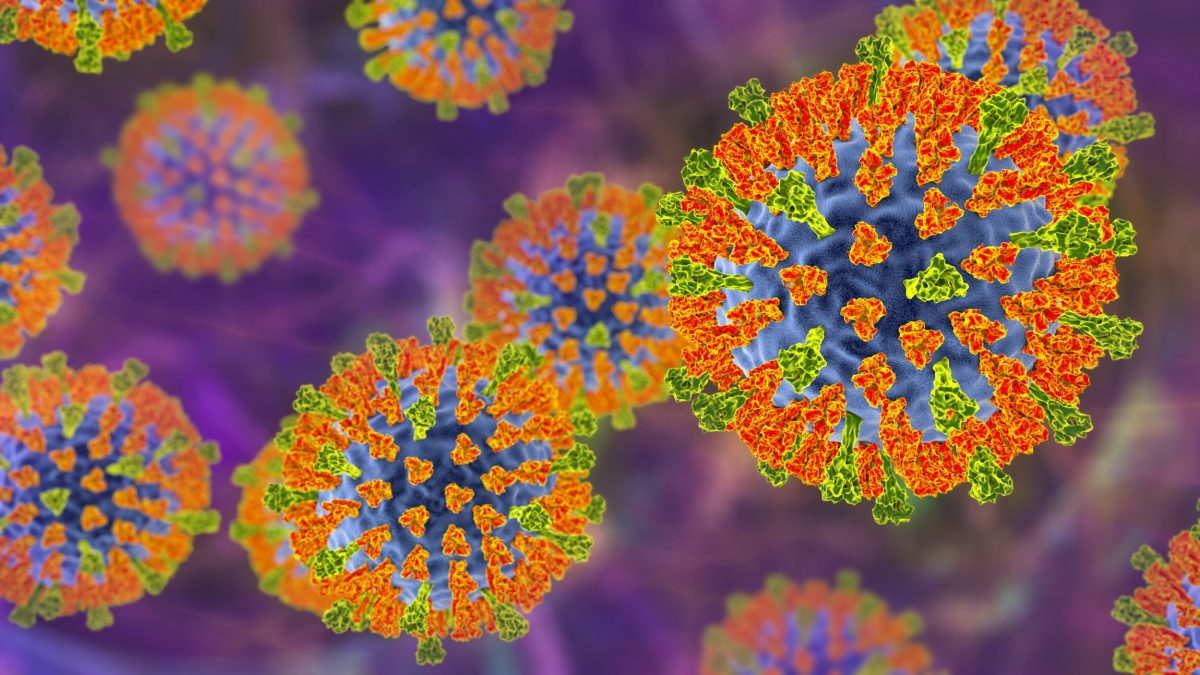Science
Surge in Measles Cases Raises Concerns Over Long-term Health Risks

Health experts are raising alarms about the increasing number of measles cases in the UK, warning of potential long-term damage to children’s immune systems. Since July 3, 2023, there have been a total of 145 confirmed measles infections, a notable rise from 109 cases reported the previous month, according to the UK Health Security Agency. The majority of these cases are among children under the age of ten, with the highest rates observed in London and the north-western regions of England.
A concerning factor contributing to this outbreak is the decline in childhood vaccination rates for measles, mumps, and rubella (MMR). Current statistics indicate that only 84 percent of children in England are vaccinated against measles, prompting health officials to warn that more outbreaks may occur, particularly as families travel abroad during the summer months.
Impact of Measles on Immune Systems
While the immediate health risks associated with measles, such as pneumonia and brain damage, are well-documented, researchers have uncovered troubling evidence regarding the virus’s impact on the immune system over a much longer period. Measles infection can lead to a phenomenon termed “immune amnesia,” where the virus effectively erases the immune system’s memory of previous infections. This can leave individuals susceptible to diseases they were previously protected against, including common viruses like Covid, chicken pox, and norovirus.
Dr. Benjamin Kasstan-Dabush, an assistant professor of global health and development at the London School of Hygiene & Tropical Medicine, emphasized the importance of ensuring that children receive two doses of the MMR vaccine. “Immune amnesia is not something that you’ll see in a lot of the communications,” he remarked. “But it damages your child’s immune memory and leaves them vulnerable to infections.”
The symptoms of measles—including fever, coughing, sneezing, and a distinctive blotchy rash—raise immediate concerns. In fact, one in twenty children with measles may develop pneumonia, a serious lung infection.
Research Findings and Public Health Responses
Scientific investigations into measles have revealed that the virus not only targets lung and skin cells but also infects immune cells, leading to a significant reduction in the number of protective antibodies. A study conducted in 2019 during a measles outbreak in a religious community in the Netherlands illustrated the effects of the virus on immune memory. Blood samples from infected children indicated that their diverse array of protective antibodies diminished by an average of one-third within two months post-infection.
Further research in the UK has shown that children who recover from measles are more likely to suffer from other infections and require antibiotic prescriptions in the five years following their illness. Dr. Rik de Swart, a virologist at the Erasmus University Medical Center, noted that the increased susceptibility to opportunistic infections persists longer than typical respiratory virus infections, providing strong evidence of the implications of immune amnesia.
In light of the rising number of measles cases, local health authorities are implementing measures to enhance vaccination coverage. In Liverpool, Alder Hey Hospital is offering the MMR vaccine to children visiting the accident and emergency department. In Hackney, London, where vaccination rates are particularly low, some general practitioners are hosting vaccine clinics on Sundays, accommodating parents who wish to bring multiple children for vaccinations.
Dr. Kasstan-Dabush reiterated the urgency of vaccinating children according to the recommended schedule to prevent the long-term consequences associated with measles. “These consequences can persist and expose children to a range of preventable diseases,” he stated.
As the UK grapples with this surge in measles infections, the focus remains on increasing vaccination rates to safeguard children’s health and mitigate the lasting effects of the virus on their immune systems.
-

 Health3 months ago
Health3 months agoNeurologist Warns Excessive Use of Supplements Can Harm Brain
-

 Health3 months ago
Health3 months agoFiona Phillips’ Husband Shares Heartfelt Update on Her Alzheimer’s Journey
-

 Science1 month ago
Science1 month agoBrian Cox Addresses Claims of Alien Probe in 3I/ATLAS Discovery
-

 Science1 month ago
Science1 month agoNASA Investigates Unusual Comet 3I/ATLAS; New Findings Emerge
-

 Science4 weeks ago
Science4 weeks agoScientists Examine 3I/ATLAS: Alien Artifact or Cosmic Oddity?
-

 Entertainment4 months ago
Entertainment4 months agoKerry Katona Discusses Future Baby Plans and Brian McFadden’s Wedding
-

 Science4 weeks ago
Science4 weeks agoNASA Investigates Speedy Object 3I/ATLAS, Sparking Speculation
-

 Entertainment4 months ago
Entertainment4 months agoEmmerdale Faces Tension as Dylan and April’s Lives Hang in the Balance
-

 World3 months ago
World3 months agoCole Palmer’s Cryptic Message to Kobbie Mainoo Following Loan Talks
-

 Science4 weeks ago
Science4 weeks agoNASA Scientists Explore Origins of 3I/ATLAS, a Fast-Moving Visitor
-

 Entertainment4 months ago
Entertainment4 months agoLove Island Star Toni Laite’s Mother Expresses Disappointment Over Coupling Decision
-

 Entertainment3 months ago
Entertainment3 months agoMajor Cast Changes at Coronation Street: Exits and Returns in 2025









